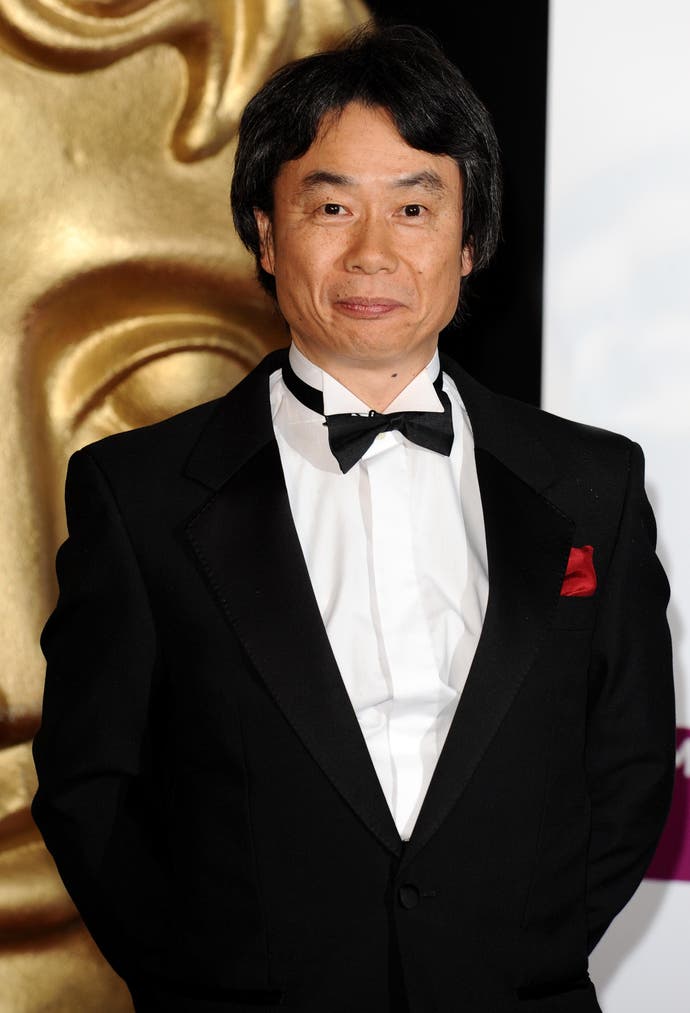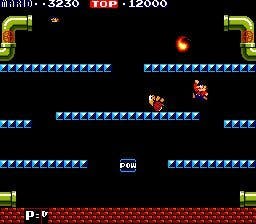Nintendo's Shigeru Miyamoto
In pursuit of happiness.
Born on 16th November 1952 in Sonebe, Japan, after graduating from college Shigeru Miyamoto was hired as a staff artist by Hiroshi Yamauchi, then Nintendo president, in 1977. Before he came to sketch out the idea for the game that would become Donkey Kong, Miyamoto immersed himself in the study of the anatomy of game design, fastidiously analysing the success of popular arcade games.
And of all the lessons he learned in those early years, it is perhaps a conversation with the late Gunpei Yokoi, Game Boy designer and original Metroid producer, that made the deepest impression on the mind of the young designer.
"In essence what he told me - and I can vividly remember it - was: 'You have thought about that too much, you have worried about that too much. Why don't you stop - you cannot make any further steps as you are right now'."
And then Yokoi gave Miyamoto an example of what he meant. He told him to imagine someone sitting in a chair and asked to open their hands every time a light was switched on. Simple. And stand up when they heard a sound. Again, simple. But what if they were asked to do both simultaneously? It's a curious, cute anecdote, but one that gets to the very core of the Miyamoto approach.

In other words, in his eagerness to learn he had been over-complicating, over-thinking the design process. What he learned from Yokoi was: "People can do something very simple, but simple things piled up: that's where new play can be born.
"My view of making videogames is to make the environment whereby people can try out many things and become creative. In other words, I try to let the players understand something very simple as the basic background and then I challenge them so they will like to challenge many different things to become creative." Exhibit A: Mario's jump. From this basic, essential element, all else flows.
When Donkey Kong arrived in 1981 it was notable not just for the game experience. Unusually - and critically - for the time, it was created not by an engineer but an artist. Now responsible for the company's entire creative output, the great artist has his own words of wisdom for Nintendo's new generation of wet-behind-the-ears wannabes.
"When a young planner approaches me with a game idea, I'm rather a tough guy!" he says with a chuckle. "And I most often reject it - or turn it back to them. A good idea is something that does not solve just one single problem, but rather can solve multiple problems at once. It's easy for people to come up with a good idea that can focus on one problem, but that's not good enough.
"So forever I'm sending back new ideas from the planners, and I say: 'This time I can't use your idea but please keep it in your mind and work on new ideas again and again and then you'll be able to find out some new, good ideas that can solve many other issues at one time.' Then that's the idea that we can use."

Miyamoto has been forced in recent years to delegate more and more of the design process to his team. "It's actually humanly impossible for me to take care of all the projects I have to do and the fact is I really love assigning some stuff to other people," he says. "But of course I make it a rule that I have to see everything in the final stages of development."
That may be true in general, but Miyamoto, still fizzing with enthusiasm, inspiration and joie de vivre, cherry-picks certain pet projects to which he devotes himself, despite the demands on his time.
"My working hours are dividing into two periods: daytime and nighttime," he explains. "I mostly spend my daytimes meeting with people, or sometimes people grab me for a quick appointment without any prior notice! It's only during the nighttimes that I am able to concentrate on some of the specific works."
That said, I'm told these days Miyamoto tries to keep his weekends free to pursue other hobbies and interests. And his approach here reveals that there exists, beneath the childlike, effervescent exterior, an indefatigable determination to succeed.
"I'm very eager to practice whenever I have an interest in anything," he admits. "Quite recently I've come to notice it's not just that I like to practice anything, I just don't want to be defeated by anyone in any particular field, that's all."
